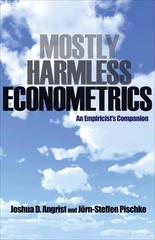Answered step by step
Verified Expert Solution
Question
1 Approved Answer
The town of Musicville has two residents: Bach and Mozart. The town currently funds its free outdoor concert series solely from the individual contributions of
- The town of Musicville has two residents: Bach and Mozart. The town currently funds its free outdoor concert series solely from the individual contributions of these residents. Each of the two residents has a utility function over private goods (X) and total concerts (C), of the form U = 3 log(X) + log(C). The total number of concerts given, C, is the sum of the number paid for by each of the two persons: C = CB + CM. Bach and Mozart both have income of 70, and the price of both the private good and a concert is 1.
- (2 points) What is the social optimal level of concerts?
- (2 points) How many concerts are given if the government does not intervene?
- (3 points) Suppose the government is not happy with the private equilibrium and decides to provide 18 concerts in addition to what Bach and Mozart may choose to provide on their own. It taxes Bach and Mozart equally to pay for the new concerts. What is the new total number of concerts? How does your answer compare to your answer to (b)? How much is crowded out by the public provision here?
- (4 points) Write down a typical regression equation for estimating the degree to which government spending crowds out private provision of public goods. Explain the main variables, the main coefficient we are interested in. Discuss the main challenges of the estimation.
Step by Step Solution
There are 3 Steps involved in it
Step: 1

Get Instant Access to Expert-Tailored Solutions
See step-by-step solutions with expert insights and AI powered tools for academic success
Step: 2

Step: 3

Ace Your Homework with AI
Get the answers you need in no time with our AI-driven, step-by-step assistance
Get Started


